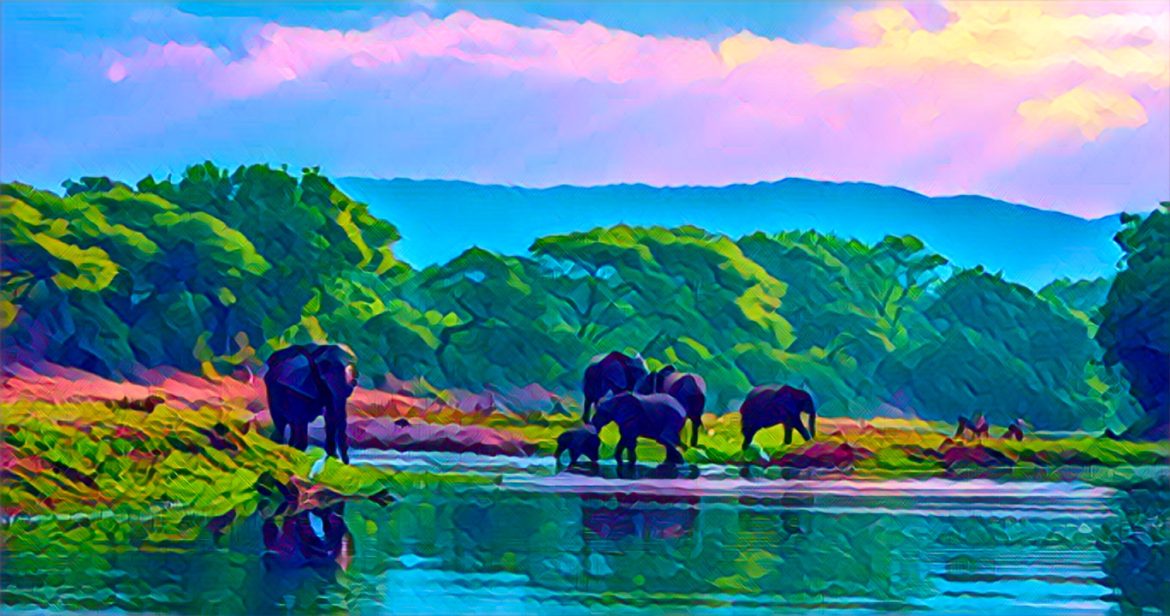KEY POINTS
- Climate change is lowering water levels in the Zambezi River.
- Biodiversity in the river ecosystem is being threatened by fluctuating water conditions.
- Local communities face economic hardship due to disrupted fishing and agriculture.
The Zambezi River, one of Africa’s most important waterways, is facing unprecedented challenges due to climate change. Stretching across several countries, including Zambia, Zimbabwe, Angola, and Mozambique, the river has been a lifeline for millions of people and wildlife.
However, shifting weather patterns and rising temperatures are threatening the delicate balance of the river’s ecosystem, with potentially devastating consequences for both nature and human communities.
Declining water levels and their consequences
Climate change is causing erratic rainfall patterns in the Zambezi River basin. Prolonged droughts are leading to reduced rainfall, which has dramatically lowered water levels in the river.
For instance, the Kariba Dam, one of the world’s largest reservoirs and a key power source for Zimbabwe and Zambia, is facing critical water shortages.
The dam’s reduced capacity is affecting hydroelectric power generation, leading to electricity shortages and widespread economic implications.
Lower river levels also disrupt aquatic life, as fish populations struggle to adapt to changing conditions.
Species such as the Zambezi River Shark, which depends on specific water conditions, are at increasing risk.
Impact on biodiversity and habitats
The Zambezi River supports a diverse range of plant and animal species, many of which are specially adapted to the region’s unique climate.
Rising temperatures and fluctuating water levels are altering these habitats, forcing wildlife to migrate or adapt in ways that can have long-term consequences.
For example, the river’s floodplains, critical for feeding and breeding, are no longer as reliable.
In places like the Lower Zambezi National Park, some areas are drying up, and this loss of wetland habitat is displacing species such as hippos and crocodiles.
Furthermore, the flora along the riverbank is struggling to cope with the new, harsher conditions, further threatening the delicate ecological balance.
Impact on human communities and economies
The Zambezi River is essential not only for wildlife but for millions of people who rely on it for water, food, and livelihoods.
Farmers, fishermen, and communities living along the river face growing uncertainty as the effects of climate change disrupt traditional practices.
Reduced water levels have made fishing increasingly difficult, leading to a decline in food security for local populations.
Agriculture is also under threat, as irrigation systems become less reliable and crop yields decrease due to unpredictable rainfall.
Additionally, tourism, a key economic driver for countries like Zambia and Zimbabwe, is being impacted as visitors are discouraged by fluctuating water levels at major attractions like Victoria Falls.
Mitigation and adaptation efforts
In response to these challenges, various organizations and governments are implementing measures to protect the Zambezi River ecosystem.
Conservation efforts are underway to restore and protect critical habitats, and there is a growing push to implement sustainable water management practices.
Efforts to improve irrigation efficiency and promote water conservation are being ramped up, while renewable energy projects aim to reduce reliance on hydropower.
However, these measures alone are not enough to address the full scope of the issue. It will require significant international cooperation, investment, and innovation to protect the Zambezi River from the ongoing threat of climate change.
The Zambezi River ecosystem is at a crossroads. Without immediate and concerted action, climate change may irreparably alter the river’s health and the livelihoods of those who depend on it.
The situation calls for urgent attention from policymakers, scientists, and local communities to ensure that the Zambezi River continues to support the vast and varied life forms that rely on it.


